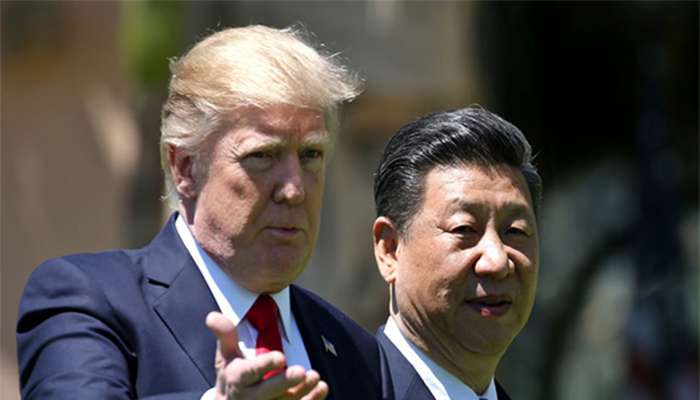
Kuala Lumpur: Top economic officials from the United States and China began talks in Kuala Lumpur on Saturday to prevent an escalation of their trade war, according to media report.
The discussions aim to ensure that a meeting occurs next week between US President Donald Trump and Chinese President Xi Jinping.
“These talks on the sidelines of the Association of Southeast Asian Nations summit will chart a path forward after Trump threatened new 100% tariffs on Chinese goods,” The Sun added.
The threatened tariffs and other trade curbs would start on November 1 in retaliation for China’s expanded export controls on rare earth magnets and minerals. Recent actions include an expanded US export blacklist covering thousands more Chinese firms.
“These developments have disrupted a delicate trade truce crafted by US Treasury Secretary Scott Bessent, US Trade Representative Jamieson Greer and Chinese Vice Premier He Lifeng,” The Sun reported. The officials had built this truce over four previous meetings since May.
China’s top trade negotiator Li Chenggang is also participating in the current talks. A Reuters witness saw Li arriving alongside
He at Kuala Lumpur’s Merdeka 118 tower, the second-tallest building in the world, The Sun reported.
The Malaysian government and both sides have provided few details about the meeting or any plans to brief the media about the outcomes.
The three officials will try to pave the way for Trump and Xi to meet next Thursday at an Asia-Pacific Economic Cooperation summit in South Korea.
“This high-stakes conversation could revolve around interim relief on tariffs, technology controls and Chinese purchases of US soybeans,” The Sun reported.
Minutes before the talks started, Trump said he would like to discuss farmers when he sits down with Xi. He also stated, “I will bring up Taiwan during my Asian trip though I have no plans to visit there yet.”
Josh Lipsky from the Atlantic Council said, “Officials must first find a way to mitigate their dispute over US technology export curbs and China’s rare earths controls.” He expressed uncertainty about China’s willingness to reverse its rare earth controls given their strategic importance.
Some announcements may fall to Trump, who is due to arrive in the Malaysian capital on Sunday. Scott Kennedy from the Centre for Strategic and International Studies highlighted the uncertainty surrounding the outcome. Kennedy noted, “Success would mean China’s gambit paid off while failure would require preparation for escalated tensions.”
The world’s two largest economies seek to avoid a return to triple-digit tariff levels seen in April. China had responded to Trump’s previous tariffs by cutting off rare earths supplies to US buyers.
Bessent and Greer’s first meeting with He in May led to a 90-day truce that significantly reduced tariffs. “This truce brought US tariffs down to about 55% and Chinese tariffs to 30% while restarting magnet flows,” The Sun reported.
The truce was extended in subsequent London and Stockholm talks and was due to expire on November 10. The delicate agreement frayed at the end of September when the US Commerce Department vastly expanded its export blacklist. The expansion automatically included firms more than 50% owned by companies already on the list, banning US exports to thousands more Chinese firms.
China struck back with new global rare earth export controls on October 10. “These controls aim to prevent military use by requiring export licenses for products using Chinese rare earths or related technology,” The Sun reported.
Bessent and Greer blasted China’s move as a global supply chain power grab. The Trump administration is considering additional curbs on software-powered exports to China according to sources.
On Friday, the administration announced a new tariff probe into China’s apparent failure to meet terms of the 2020 trade agreement.
“This move could create additional legal authority for Trump to further increase tariffs on Chinese imports,” The Sun reported. China committed to major purchase increases in the 2020 deal that halted their trade war during Trump’s first term.
“The purchase targets for US farm products, manufactured goods, energy and services were never met. This situation could lead the US side to press Beijing to resume buying American soybeans,” The Sun reported. China bought no US soyabeans in September, heaping economic pain on farmers who represent a key Trump political constituency.